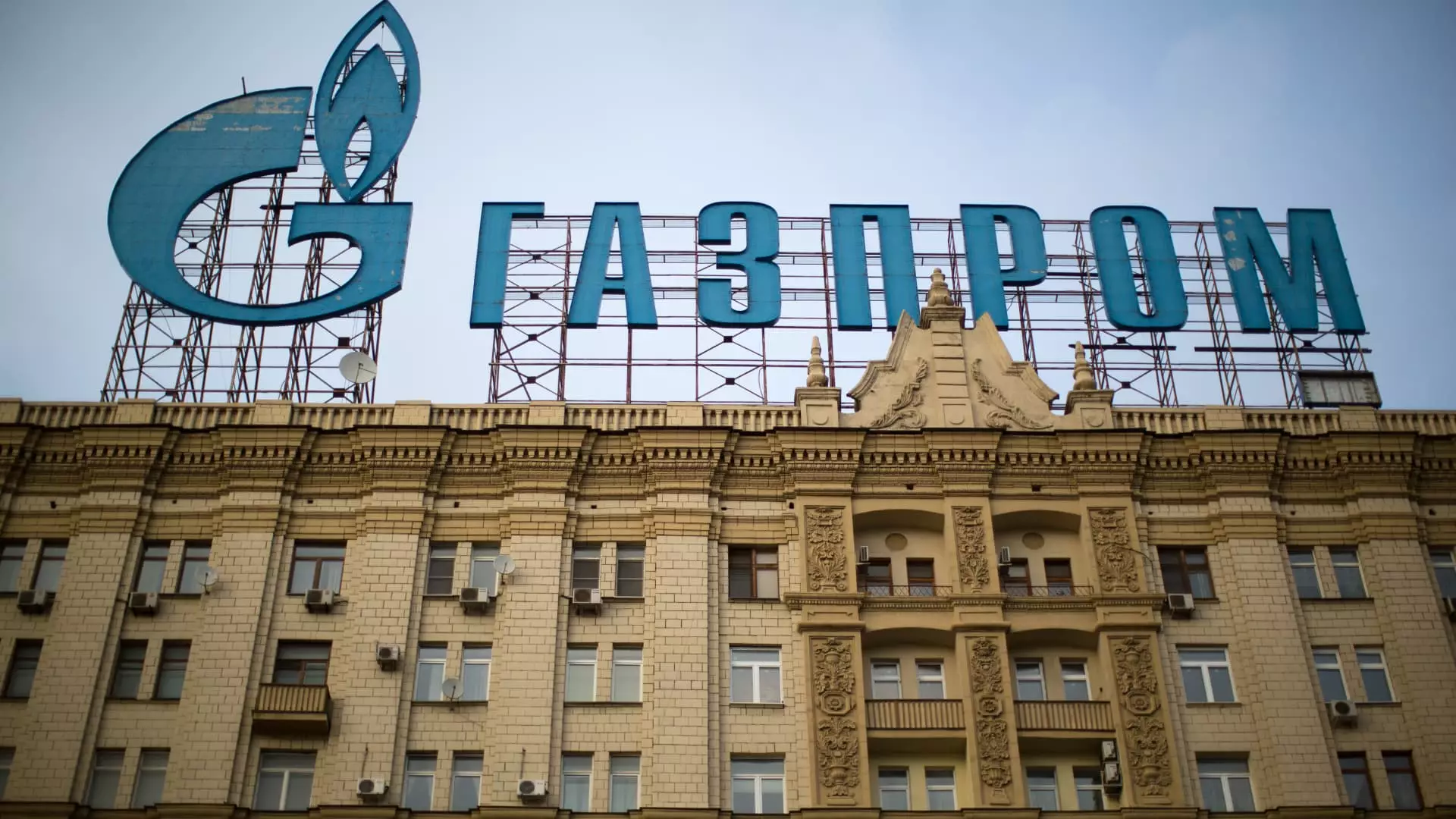The recent announcement by Gazprom, Russia’s state-controlled gas monopoly, to halt gas supplies to Moldova as of January 1 has sent shockwaves through the small Eastern European nation. The company cites unpaid debts as the primary reason for this drastic measure, which Moldova vehemently disputes. As the country braces for potential energy shortages during the harsh winter months, the implications of this development extend beyond merely economic concerns and into the realm of geopolitical strategy.
Moldova, with its pro-Western government, has been experiencing increasing tensions with Russia, particularly in light of its aspirations to join the European Union. The Kuciurgan power plant, situated in the self-proclaimed pro-Russian Transnistria region, plays a crucial role in Moldova’s energy landscape, providing electricity for a large portion of the country. Gazprom’s announcement not only threatens the functionality of this vital power plant but also exacerbates the existing energy crisis Moldova faces, stemming from geopolitical friction and reliance on Russian energy supplies.
Given Moldova’s historical context and recent efforts to reaffirm its sovereignty and independence, the cessation of gas supplies raises questions about the dynamics of energy dependency in international relations. The Moldovan government’s response, accusing Moscow of weaponizing energy, reflects the broader sentiments of many Eastern European countries that view their energy infrastructure as tools of political pressure.
Disputes Over Debt
At the heart of the standoff is Gazprom’s claim that Moldova owes approximately $709 million for past gas supplies, a figure the Moldovan government has strongly contested. Moldovan Prime Minister Dorin Recean’s assertion that this debt was invalidated by an international audit conducted by British and Norwegian firms, which suggested the actual amount owed is a mere $8.6 million, speaks volumes about the contentious nature of this relationship. This ongoing dispute represents not just financial disagreements but a fundamental clash over economic sovereignty and credibility on the international stage.
Moldova’s efforts to diversify its energy sources, reducing its significant reliance on Russian gas, feature prominently in its strategy to mitigate risks associated with Moscow’s leverage. The Moldovan government has hinted at potential legal recourse, including international arbitration, to address what it perceives as unjust claims by Gazprom. This route illustrates a strategic pivot away from dependency on Russian energy, aiming to align more closely with European standards.
Emergency Measures and Adjustments
In anticipation of energy shortages, Moldova’s parliament enacted a state of emergency for the energy sector earlier this month, demonstrating the gravity of the situation. An array of measures has been approved to decrease energy consumption, including restrictions on public lighting and the operation hours for energy-intensive businesses. These responses signal not only a reaction to immediate threats but also an adaptive strategy to manage long-term energy sustainability.
The Kuciurgan power plant’s privatization in 2004 by Russian state-owned entities complicates the situation further. Moldova’s refusal to recognize the legitimacy of this transaction opens a dialogue about post-Soviet energy politics, ownership rights, and the larger narrative of Eastern European autonomy in face of historical ties to Russia.
As Moldova navigates this complex landscape, the repercussions of Gazprom’s actions resonate beyond its borders. The situation is emblematic of a broader struggle occurring in Eastern Europe, where countries like Moldova are fighting to assert themselves against a backdrop of historical Russian influence. The challenge is exacerbated by recent Russian military actions in Ukraine, which have reshaped energy landscapes and alliances across the continent.
Furthermore, as European countries scramble to replace Russian gas supplies with alternatives—often more expensive liquefied natural gas (LNG) imported from suppliers like the United States and Qatar—the stakes are higher than ever. This pivot signifies a fundamental restructuring of energy dependencies in Europe and a potential long-term shift in geopolitical alliances.
The crisis stemming from Gazprom’s recent actions towards Moldova underscores the fragility of energy security for countries striving for greater independence from Russian influence. Moldova’s government is left with the challenging task of not only addressing immediate energy needs but also redefining its energy policy in a rapidly evolving geopolitical landscape. As Moldova pushes forward with aspirations for European integration, the interplay between energy, sovereignty, and international diplomacy will undoubtedly continue to shape its future. The situation remains a testament to the emerging reality that energy is not merely an economic commodity but a powerful tool in the hands of political actors.

Leave a Reply